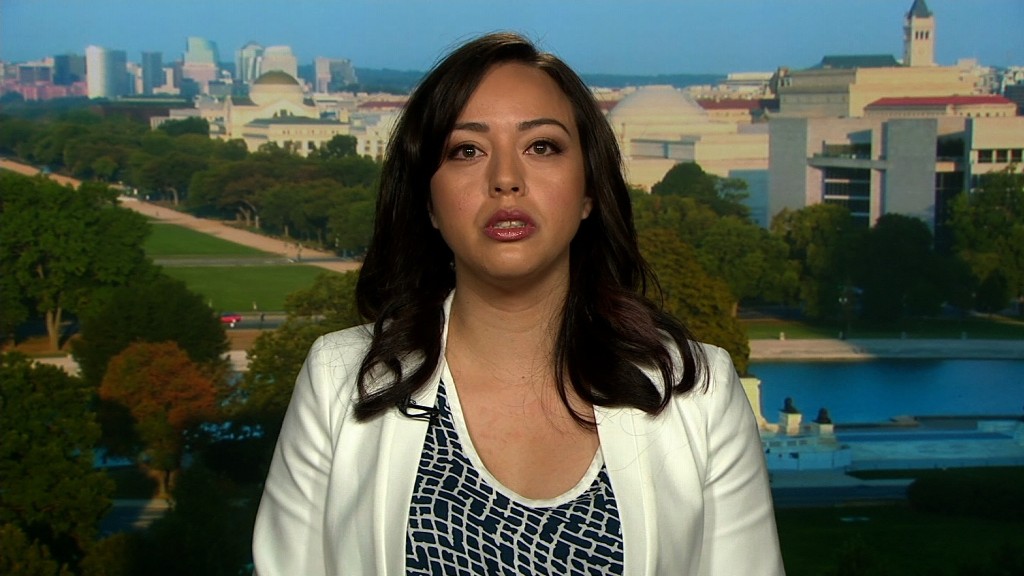
Fake election news wasn't just for Facebook feeds. Twitter had its share as well.
"Polarizing and conspiratorial junk news" was as prevalent on Twitter as news from legitimate outlets in the days immediately before and after the US presidential election, a new study out of the University of Oxford released Thursday suggests.
Researchers from the university's Computational Propaganda Project examined more than 7 million tweets sent between November 1-11, 2016, which contained hashtags related to politics and the election. The study has yet to be peer reviewed and the team acknowledged limitations to its methodology.
They split content into categories including professional news, professional political content -- like that from a candidate's campaign -- and "polarizing and conspiracy content" which included objectively fake news websites, Russian sources of political news and WikiLeaks. Oxford researchers said the categories were not intended to be comprehensive.
Related: Exclusive: Russian-bought Black Lives Matter ad on Facebook targeted Baltimore and Ferguson
They found that "polarizing and conspiracy" sources accounted for 20% of links shared. Links from professionally produced news organizations also accounted for 20% of links shared. Links from professionally produced political material accounted for 10%. Other political content, including activist blogs and political satire, made up the remaining 50%
Researchers assigned each tweet a location based on Twitter users' biographical information. This allowed them to estimate how fake and polarizing content was shared across individual states -- what they call the "junk news index." The researchers acknowledged that volunteered location information could be misleading in some cases.
The study found that in 11 of the 16 swing states, as identified by the National Constitution Center, junk news was shared at a rate above the national average.
"We found that in the swing states there was a higher concentration of this highly polarizing content," Samantha Bradshaw, a researcher who worked on the study, told CNN
"So many people today use these platforms today to obtain political news and information about politics that shape their political identities and impact their voting behavior," Bradshaw added.
Speaking on CNN's New Day, CNN counterterrorism analyst Phil Mudd noted that the higher concentration of polarizing content shared in swing states may be a result of ordinary people in those states being more engaged in political debate because they knew the race would be close where they lived.
The findings do not necessarily show that the fake news helped to shift the election. The rate of sharing of fake news in several states that proved pivotal to the outcome -- Wisconsin, Michigan and Pennsylvania -- was not higher than in other swing states, for instance.
The study focused on tweets that used certain election-related hashtags sent from accounts that included geographic information. Researchers did not say which hashtags were used.
Twitter, for its part, has said it doesn't police fake news.
In a blog post on "bots and misinformation" in June, Colin Crowell, the vice-president of public policy at Twitter said the networks "cannot distinguish whether every single Tweet from every person is truthful or not," and they did not view themselves as being the arbiters of truth.
"Journalists, experts and engaged citizens Tweet side-by-side correcting and challenging public discourse in seconds," Crowell wrote. "These vital interactions happen on Twitter every day, and we're working to ensure we are surfacing the highest quality and most relevant content and context first."
Crowell also warned that research conducted by third party groups about the spread of misinformation on the platform could be flawed as groups did not have access to the full capabilities of the Twitter database.
The findings were released just hours before Twitter officials were scheduled to meet with congressional investigators about how Russian-linked accounts may have used the social media platform to spread misinformation.
The Oxford report concluded, "junk news, characterized by ideological extremism, misinformation and the intention to persuade readers to respect or hate a candidate or policy based on emotional appeals, was just as, if not more, prevalent than the amount of information produced by professional news organizations."


